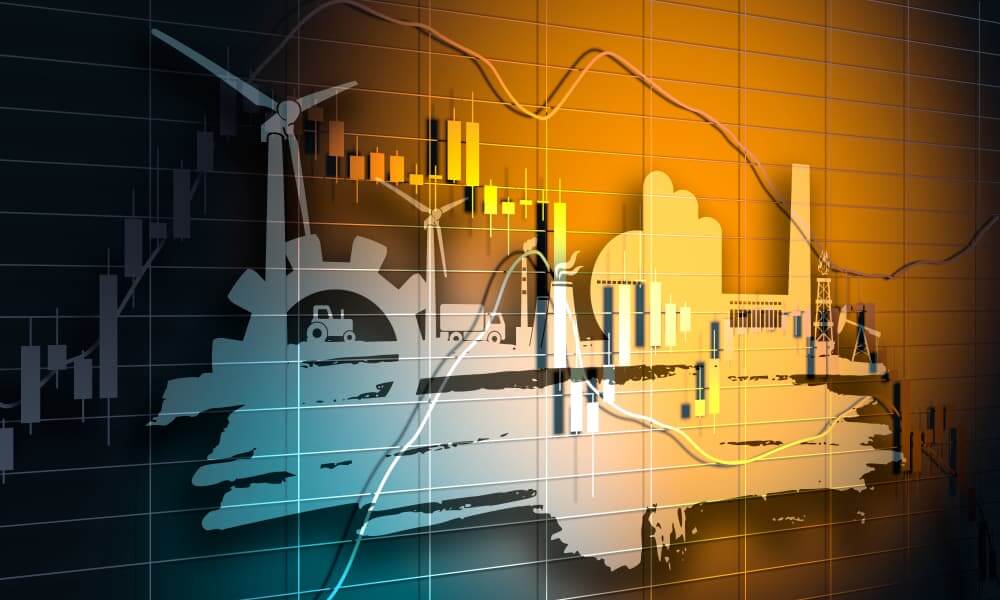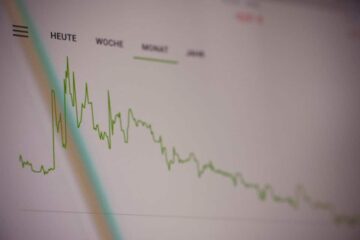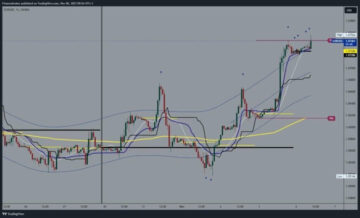The European energy crisis has cast a formidable shadow over the continent, demanding immediate attention and innovative solutions. As the European Central Bank (ECB), the International Energy Agency (IEA), and the European Investment Bank (EIB) prepare to convene in Paris on September 29, the urgency of the situation cannot be overstated. This article delves into the complexities of the crisis, explores the reasons behind the soaring electricity costs, and sheds light on potential remedies.
The Geopolitical Turbulence and Energy Prices Surge
The roots of the European energy crisis can be trace back to geopolitical upheavals. The invasion of Ukraine by Russia sent shockwaves through global energy markets. Sanctions and tensions led to a remarkable surge in oil and gas prices, with WTI and Brent crude benchmarks currently flirting with the $90-per-barrel mark and ominous predictions of breaking the $100 barrier. Diesel prices in the US have already exceeded $140, while Europe has witnessed a staggering 60% surge in prices since the summer.
Energy Costs Threaten Competitiveness
The repercussions of these soaring energy costs are deeply felt across European industries. Input costs have catapulted to unprecedented heights, surpassing those of other developed economies like Japan, the US, and Canada. According to the Economist Intelligence Unit, this predicament could potentially translate into a higher debt burden, an increase in business failures, and disruptions to the green transition.
The Elusive European Industrial Policy
One glaring challenge exacerbating the crisis is the absence of a robust industrial policy in Europe, one that can rival the strategic prowess of the US, China, Korea, or Japan. This inadequacy is particularly pronounced in the energy sector as Europe endeavors to shift towards green energy while simultaneously grappling with the Ukrainian crisis.

Securing Energy Stores and Political Hurdles
One critical aspect of Europe’s strategic approach involves securing affordable supplies of critical minerals for clean energy supply chains and fuels. However, political factors have cast a shadow over this endeavor. For instance, negotiations between the EU and Mercosur, a coalition of South American nations, have remained stalled since 2019, primarily due to concerns among French farmers about competition from these agricultural powerhouses.
Political tension in Francophone Africa further complicates matters. Western Africa has experienced a series of military takeovers since 2020, often marked by strong anti-French and anti-European sentiment. While some corporations maintain that business will proceed as usual, the feasibility of Brussels negotiating beneficial agreements with such regimes remains uncertain.
Charting a Course Towards a Resilient Energy Future
As autumn unfolds, all eyes are on Europe to develop a comprehensive energy strategy capable of dispelling the cloud of uncertainty looming over businesses and the general public alike. Winter approaches, raising questions about Europe’s preparedness for another potential energy price shock and whether further scrambling will only exacerbate input costs. The world watches closely, waiting for a plan that will reassure Europeans in these trying times.
The European energy crisis is a multifaceted challenge driven by geopolitics, inadequate industrial policies, and political hurdles. However, with concerted efforts and strategic planning, Europe can navigate these troubled waters and emerge with a more resilient and sustainable energy future. The upcoming meeting of the ECB, IEA, and EIB holds promise as a crucial step towards addressing this pressing issue.
- SEO Powered Content & PR Distribution. Get Amplified Today.
- PlatoData.Network Vertical Generative Ai. Empower Yourself. Access Here.
- PlatoAiStream. Web3 Intelligence. Knowledge Amplified. Access Here.
- PlatoESG. Carbon, CleanTech, Energy, Environment, Solar, Waste Management. Access Here.
- PlatoHealth. Biotech and Clinical Trials Intelligence. Access Here.
- Source: https://www.financebrokerage.com/the-european-energy-crisis-navigating-the-challenges/
- :has
- :is
- 2019
- 2020
- 29
- a
- About
- According
- across
- addressing
- affordable
- africa
- agency
- agreements
- Agricultural
- alike
- All
- already
- American
- among
- an
- and
- Another
- approach
- approaches
- ARE
- article
- AS
- aspect
- attention
- back
- Bank
- barrier
- BE
- behind
- benchmarks
- beneficial
- between
- Breaking
- brent
- Brent Crude
- Brussels
- burden
- business
- businesses
- by
- CAN
- Canada
- cannot
- capable
- central
- Central Bank
- chains
- challenge
- challenges
- China
- clean energy
- closely
- Cloud
- coalition
- competition
- complexities
- comprehensive
- Concerns
- concerted
- continent
- Corporations
- Costs
- could
- course
- crisis
- critical
- critical aspect
- crucial
- crude
- Currently
- Debt
- demanding
- develop
- developed
- diesel
- disruptions
- driven
- due
- ECB
- economies
- Economist
- efforts
- electricity
- emerge
- endeavor
- endeavors
- energy
- energy crisis
- energy prices
- Ether (ETH)
- EU
- Europe
- European
- European Central Bank
- European energy crisis
- Europeans
- Europes
- exceeded
- experienced
- explores
- Eyes
- factors
- farmers
- felt
- For
- formidable
- FRANCOPHONE AFRICA
- French
- from
- fuels
- further
- future
- GAS
- gas prices
- General
- general public
- geopolitical
- Geopolitics
- Global
- grappling
- Green
- green energy
- Have
- heights
- higher
- holds
- However
- HTTPS
- Hurdles
- IEA
- immediate
- in
- Increase
- industrial
- industries
- innovative
- input
- instance
- Intelligence
- International
- into
- invasion
- investment
- involves
- issue
- Japan
- jpg
- korea
- Led
- light
- like
- looming
- maintain
- mark
- marked
- Markets
- Matters
- meeting
- Military
- minerals
- more
- multifaceted
- Nations
- Navigate
- navigating
- negotiations
- of
- often
- Oil
- Oil and Gas
- on
- ONE
- only
- or
- Other
- over
- paris
- particularly
- plan
- planning
- plato
- Plato Data Intelligence
- PlatoData
- policies
- policy
- political
- potential
- potentially
- powerhouses
- Predictions
- Prepare
- pressing
- price
- Prices
- primarily
- proceed
- promise
- pronounced
- prowess
- public
- Questions
- raising
- reasons
- reassure
- regimes
- remained
- remains
- remarkable
- repercussions
- resilient
- Rival
- robust
- roots
- Russia
- Sanctions
- sector
- securing
- sent
- sentiment
- September
- Series
- Shadow
- shift
- simultaneously
- since
- situation
- soaring
- Solutions
- some
- South
- Step
- stores
- Strategic
- strategic approach
- Strategy
- strong
- such
- summer
- supply
- Supply chains
- surge
- surpassing
- sustainable
- Sustainable Energy
- tensions
- that
- The
- The Economist
- the world
- These
- this
- those
- threaten
- Through
- times
- to
- towards
- trace
- transition
- translate
- trying
- turbulence
- Ukraine
- Ukrainian
- Uncertain
- Uncertainty
- unit
- unprecedented
- upcoming
- urgency
- us
- Waiting
- watches
- Waters
- webp
- Western
- whether
- while
- will
- Winter
- with
- witnessed
- world
- WTI
- zephyrnet












